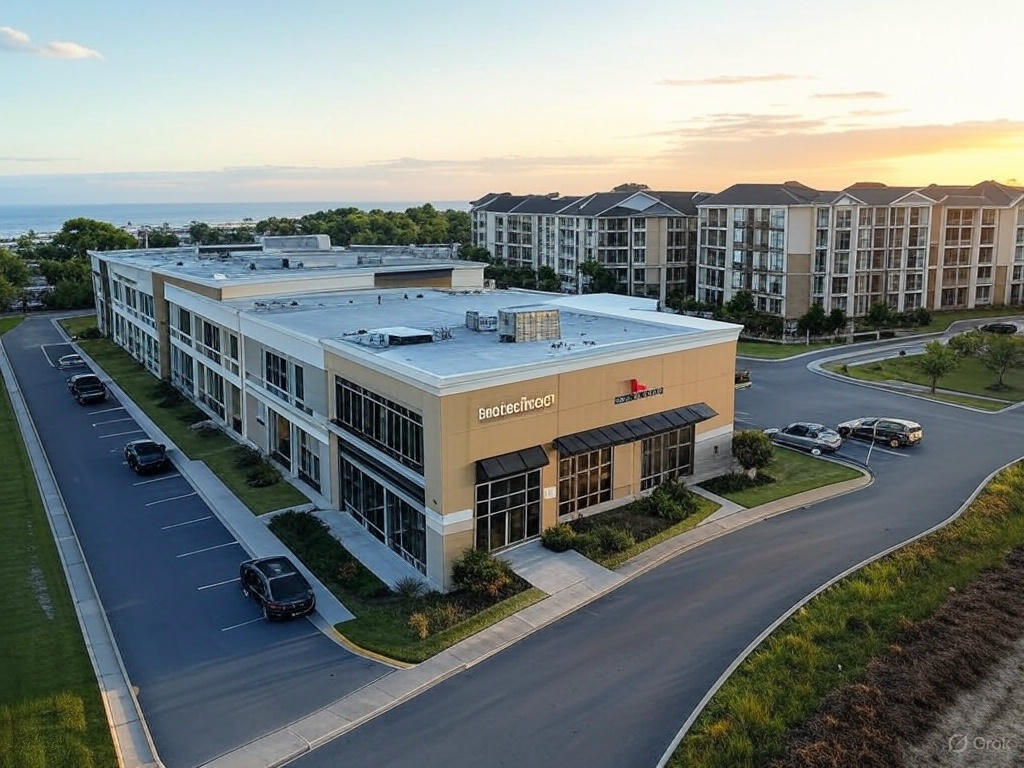
Investing in commercial real estate on the Gulf Coast, particularly in Mississippi, offers a wealth of opportunities for financial growth. Beyond the potential for steady rental income and property appreciation, one of the most compelling reasons to invest in this region is the array of Gulf Coast commercial property tax benefits. These tax advantages can significantly boost your investment returns, making the region an attractive destination for savvy investors. In this 1000-word article, we’ll explore the federal, state, and local tax benefits and incentives available, explain how to qualify for them, and provide real-world examples of their impact—all optimized for SEO following Yoast guidelines.
When it comes to Gulf Coast commercial property tax benefits, federal incentives provide a strong foundation for reducing your tax liability. One of the most powerful tools is depreciation. The IRS allows commercial property owners to deduct a portion of the property’s cost over its useful life—typically 39 years for commercial buildings. This deduction offsets rental income, lowering your taxable income and enhancing cash flow.
Another key federal benefit is the 1031 exchange. This provision lets investors defer capital gains taxes by reinvesting proceeds from a property sale into a similar property. For Gulf Coast investors, this can mean upgrading to a higher-value commercial asset without an immediate tax hit, preserving capital for further investments.
The Gulf Coast also includes several Opportunity Zones, federally designated areas offering tax advantages for investments. By investing in these zones, you can defer capital gains taxes, reduce them over time, and even eliminate taxes on new gains if held for 10 years. These federal incentives make the Gulf Coast a prime location for maximizing Gulf Coast commercial property tax benefits.
Mississippi enhances the appeal of Gulf Coast commercial property tax benefits with state-specific programs tailored to commercial investors. One standout incentive is the tax credit for job creation. If your commercial property development generates new jobs—say, through retail or office spaces—you may qualify for credits that reduce your state tax burden.
Additionally, Mississippi offers property tax exemptions for certain commercial properties, such as those used for manufacturing or warehousing. These exemptions can lower your annual expenses, freeing up funds for reinvestment or property improvements. Compared to the national average property tax rate of around 1.1%, Mississippi’s average rate of approximately 0.75% is notably lower, amplifying the value of these exemptions.
These state-level perks make Mississippi a standout within the Gulf Coast region, providing a competitive edge for investors seeking Gulf Coast commercial property tax benefits.
Beyond federal and state programs, local municipalities along the Gulf Coast offer tailored incentives to attract commercial property investors. Cities like Gulfport and Biloxi, for instance, provide tax abatements for new developments or renovations in targeted areas. These abatements can reduce property taxes for a set period, boosting your return on investment.
In Gulfport, the Economic Development Council offers incentives for projects that create jobs or improve infrastructure. Similarly, Biloxi provides tax breaks for properties contributing to revitalization efforts, such as converting historic buildings into commercial hubs. These local programs complement broader Gulf Coast commercial property tax benefits, offering additional savings that can be customized to your project.
Engaging with local economic development offices is key to unlocking these benefits, as eligibility often depends on the specific nature and location of your investment.
To fully leverage Gulf Coast commercial property tax benefits, understanding eligibility and application processes is crucial. For federal programs like Opportunity Zones or 1031 exchanges, compliance with IRS guidelines is essential. For instance, Opportunity Zone investments must be made through a Qualified Opportunity Fund, while 1031 exchanges require strict timelines for identifying and purchasing replacement properties.
At the state level, Mississippi’s Department of Revenue outlines requirements for tax credits and exemptions. Job creation credits, for example, may require documentation of new hires, while property tax exemptions might need proof of the property’s use. Local incentives often involve direct coordination with city or county officials, who can provide application forms and deadlines.
Given the complexity, working with a tax professional or real estate advisor familiar with Gulf Coast regulations can streamline the process, ensuring you maximize every available Gulf Coast commercial property tax benefit.
The Gulf Coast, especially Mississippi, stands out as a hotspot for commercial property investors due to its layered tax advantages. From federal depreciation and 1031 exchanges to state tax credits and local abatements, Gulf Coast commercial property tax benefits offer multiple avenues to enhance profitability. Mississippi’s low property tax rates—among the lowest in the U.S.—further sweeten the deal, providing a cost-effective environment for long-term growth.
Whether you’re eyeing a retail center in Gulfport or an office complex in Biloxi, these incentives can reduce costs and increase returns. With careful planning and expert guidance, you can harness these benefits to build a robust portfolio. The Gulf Coast isn’t just a place to invest—it’s a place to thrive, thanks to its unique combination of Gulf Coast commercial property tax benefits.
Author Bio:
Grey Molyneaux is a commercial real estate agent specializing in seller representation on the Mississippi Gulf Coast. With a strong background in sales and marketing, he helps property owners maximize their real estate investments through strategic marketing. Grey is also a dedicated husband, father, and musician, balancing his professional expertise with his creative passions.

(228) 278-6616
grey@molyneauxgroup.com